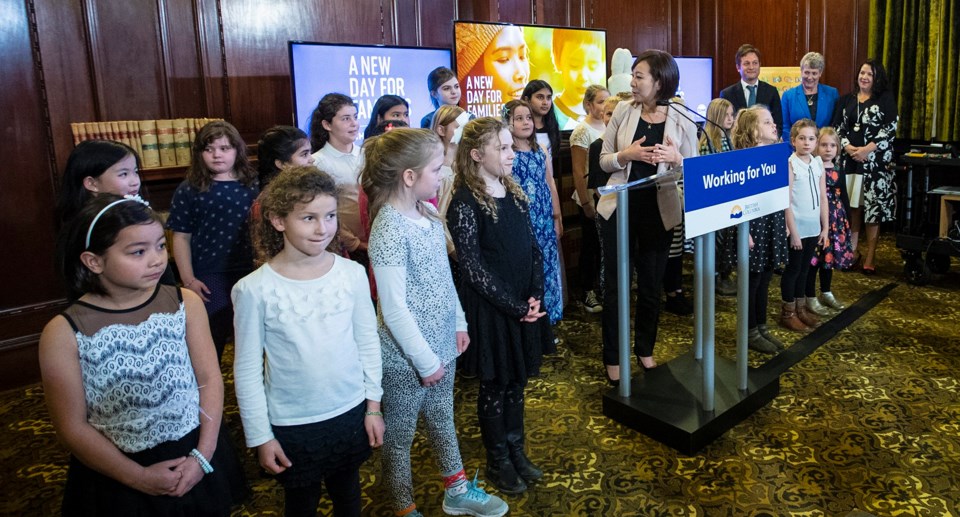More current and future childhood educators will receive bursaries to help cover tuition costs at post-secondary schools, the B.C. government has announced.
The province will invest an extra $1.9 million through its early learning and child care agreement with the federal government to pay for more bursaries, Katrina Chen, minister of state for child care, said Friday.
“This is really an incentive to encourage more early childhood educators to come into the field,” she said.
“So we want to expand that and also making sure that their application process is way easier for students to access.”
Students can received bursaries up to $4,000 per semester, while early childhood educators looking to upgrade or complete their credentials can get up to $5,000 per semester.
Chen said that, depending on the institution, the money can go a long way to covering tuition costs.
Beginning next month, the Early Childhood Educators of B.C. will make it easier for people to apply for the bursary by removing a requirement that they provide financial documents, the government said.
In addition, people working in StrongStart centres across B.C. will be eligible to apply for a Workforce Development Fund bursary.
“They are early childhood educators as well, but just not working in a child care setting, so we want to make sure that they’re covered,” Chen said.
She said about 1,100 bursary applications were approved last year at a cost of about $2 million. She expects the latest investment will result in a similar number of approvals.
Rachel Jantzen, a student at North Island College in the Comox Valley, said the bursary program has allowed her to stay in school
“The ability for me to actually go back to school and not have to work full time while doing it is incredibly helpful,” she said.
“It also let me continue my education.”
Jantzen, 21, plans to continue her education at the University of Victoria to get her degree in child and youth care.
“Without that funding, that wouldn’t have even been an option,” she said. “I would have to take some time off to work, to save up some money to actually be able to go back to school again.”
Meanwhile, the government will spend $1.8 million to evaluate its early care and learning strategy. Early Childhood Educators of B.C. will lead the study and focus on gathering more data on the sector, Chen said.
“That’s one thing we really struggle with,” she said. “We have very little information, because the sector is so diverse and there was never a comprehensive action or strategy before. So we have little information on where early childhood educators are working, how they’re paid, why do they leave the field.
“We know the stories, but I think we need information and also a good database to collect all the information.”
The government says it is spending $1.3 billion over four years to help establish a universal child care system.



